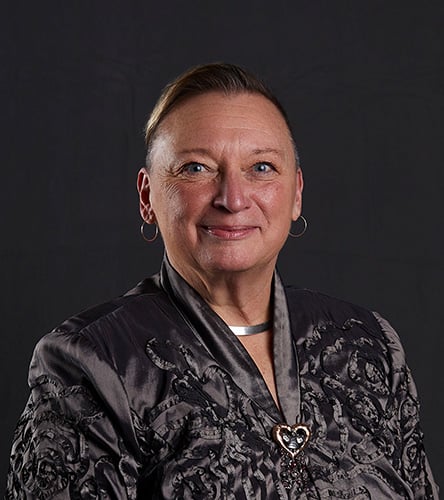BROOKLYN
245 Clinton Ave., Brooklyn, NY 11205
Main: 718.940.5300
Admissions: 718.940.5800
Fax: 718.940.5680
LONG ISLAND
155 W. Roe Blvd., Patchogue, NY 11772
Main: 631.687.5100
Admissions: 631.687.4500
Fax: 631.687.4539

Professor
Nursing
LI
Ph.D., School of Nursing, Duquesne University, 2006
Post Master's in Nursing Education, Duquesne University, 2005
Post Master's in Forensic Nursing, Duquesne University, 2004
Post Master's in Family Nursing, SUNY Stony Brook, 1999
M.S., Nurse Practitioner in Adult Health, SUNY Stony Brook, 1994
B.S., Department of Nursing, St. Joseph's University, New York, 1992
A.D., Nursing, Suffolk County Community College, 1985
Catherine Pearsall has been a practicing nurse on Long Island since 1992. She has experience working with older adults, individuals with special needs and primary care patients. Before coming to St. Joseph’s in 2004, Dr. Pearsall worked as a nurse practitioner at Central Suffolk Hospital/Peconic Bay Primary Medical Care in Riverhead for almost 10 years. She is also a consulting expert witness in malpractice cases.
Dr. Pearsall holds several certifications, including Geriatric Education Center Associate Program, National League for Nursing Certified Nurse Educator and Certification as an Online Educator.
She has done extensive research on elder abuse and published several articles on the topic including, “Forensic Biomarkers of Elder Abuse: What Clinicians Need to Know,” which appeared in the Journal of Forensic Nursing. She authored a chapter entitled Elder Maltreatment: Forensic Biomarkers in Forensic Nursing Science, 2nd edition textbook by V.A. Lynch & J.B. Duval. Dr. Pearsall’s accomplishments have earned her several awards, including grant funding from St. Joseph’s University, New York and the 1997 Nurse of Excellence Award at Central Suffolk Hospital. She was selected as a protégé in the NLN/Johnson & Johnson Faculty Leadership and Mentoring Program.
Dr. Pearsall is affiliated with several professional organizations, including the National League for Nursing, Sigma Theta Tau International, the American Nurses Association and the International Association of Forensic Nurses, among others.
Interests include research and publication activities to support evidence-based nursing practice.
Pearsall, C., Pardue, K.T., Horton-Deutsch, S., Young, P.K, Halstead, J., Nelson, K.A., Morales, M., & Zungolo, E. (2014). Becoming a nurse faculty leader: Doing your homework to minimize risk-taking. Journal of Professional Nursing, 31(1), 26-33. doi: 10.1016/j.profnurs.2012.10.010
Pardue, K., Pearsall, C., et al. (2014). Becoming a nurse faculty leader: Taking risks by being willing to fail. Manuscript in preparation).
Horton-Deutsch, S., Pardue, K., Young, P., Morales, M., Halstead, J., & Pearsall, C. (2013). Becoming a nurse faculty leader: Taking risks by doing the right thing. Nursing Outlook, 62(2), 89-96. doi: 10.1016/j.outlook2013.12.003
Pearsall, C., Hodson-Carlton, K., & Flowers, J.C. (2012). Barriers and strategies toward the implementation of a distance nurse educator role. Nursing Education Perspectives, 33(6), 399-405.
Young, P., Pearsall, C., Stiles, K., Nelson, K., Horton-Deutsch, S. (2011). Becoming a nurse faculty leader. Nursing Education Perspectives, 32(4), 222-228.
Pearsall, C. (2011). Elder maltreatment: Forensic biomarkers. In V.A. Lynch & J.B. Duval (Eds.), Forensic nursing science (2nd ed., pp. 355-369). St. Louis, MI: Elsevier.
Richardson, L., Resick, L., Leonard, M., & Pearsall, C. (2009). Undergraduate students asstandardized patients to assess advanced practice nursing student competencies. Nurse Educator, 34(1), 12-16.
Pearsall, C. (2006). Detection and management of elder abuse: Nurse practitioner self-perceptions of barriers and strategies. Ann Arbor, MI: UMI.
Pearsall, C. (2005). Forensic biomarkers of elder abuse: What clinicians need to know. Journal of Forensic Nursing, 1(4), 182-186.
"Save one life and you’re a hero. Save one hundred lives and you’re a nurse."
— Unknown
Get Social
Get Social